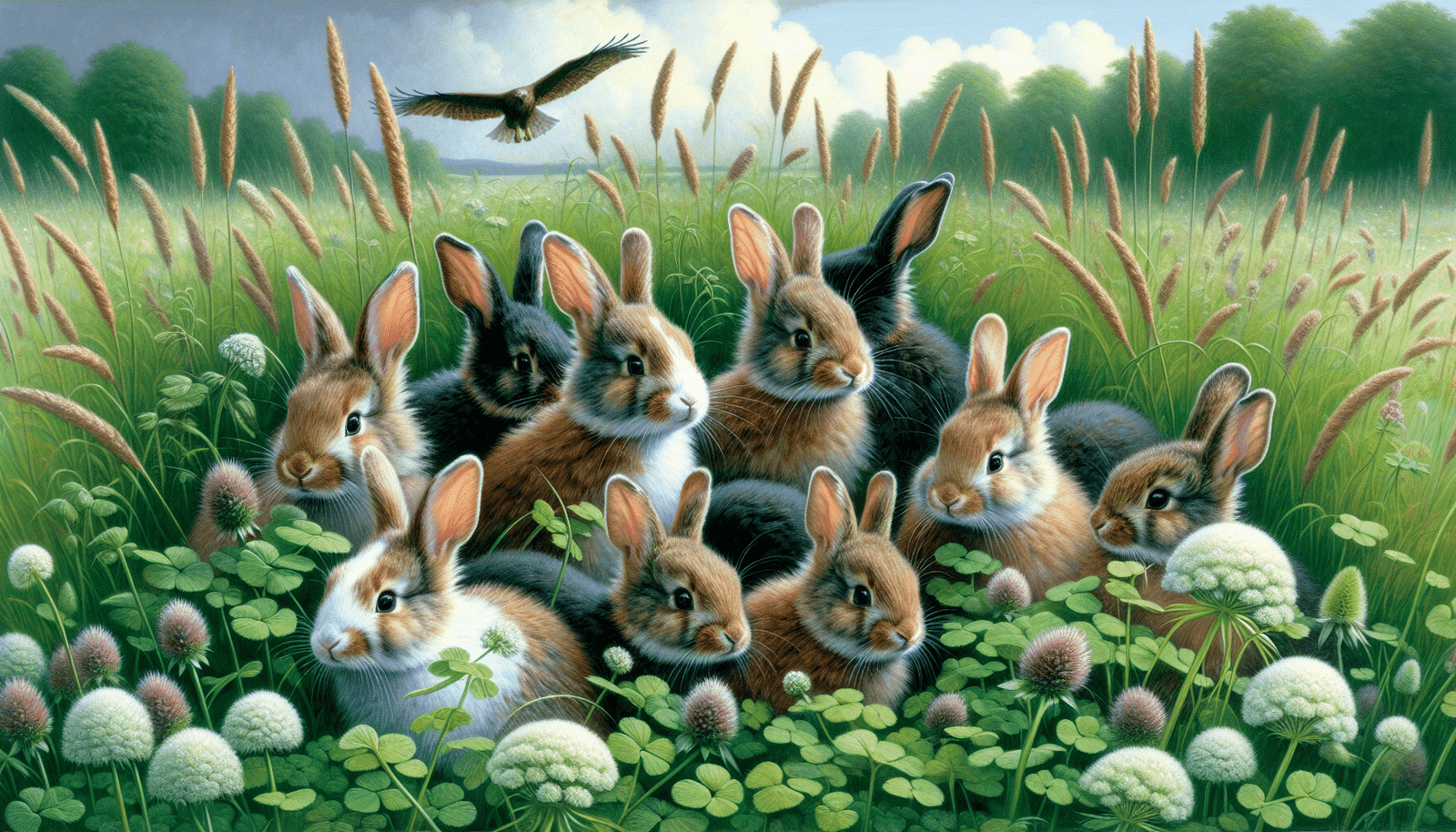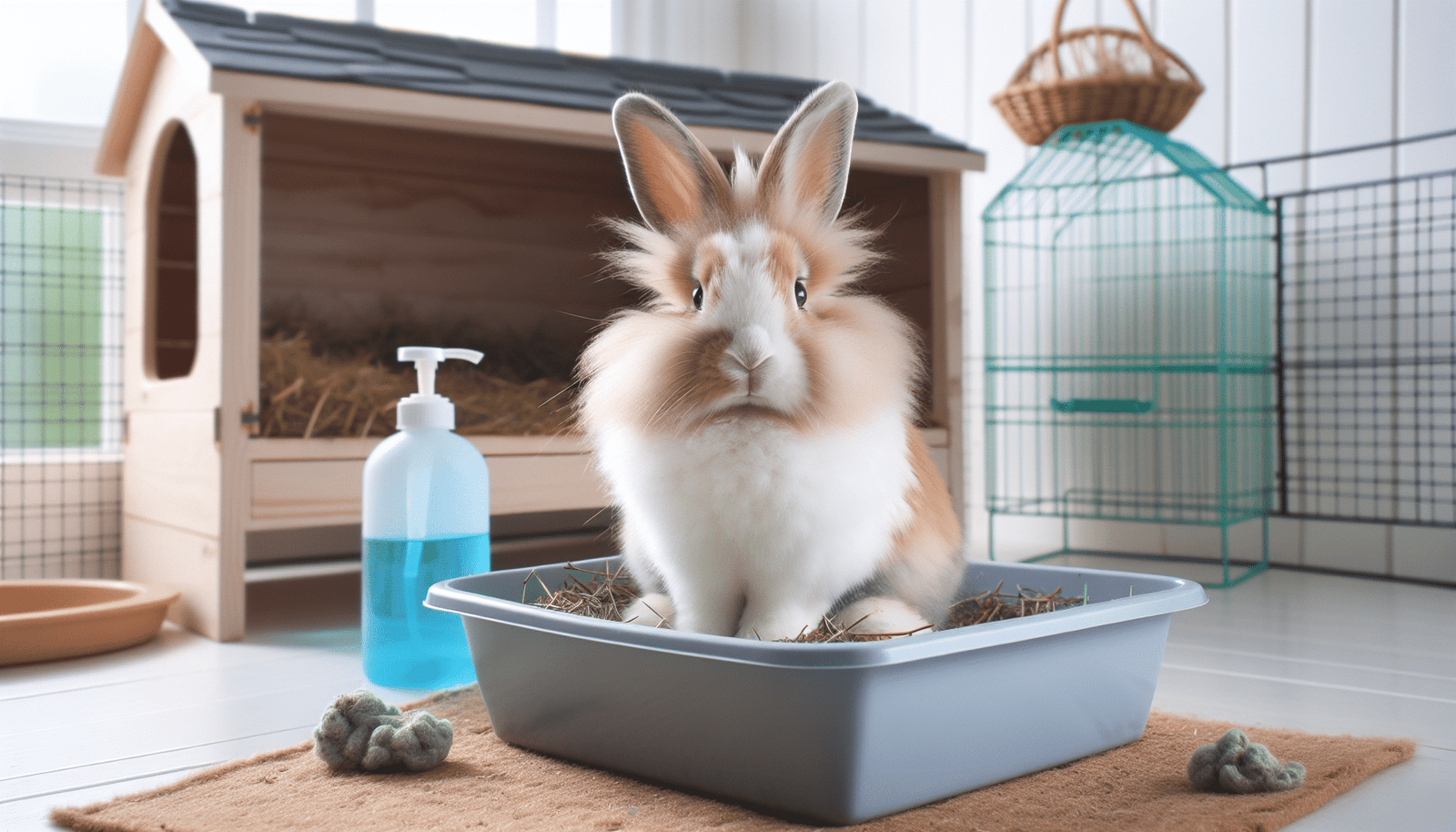Navigating the behavior problems of domesticated rabbits can be perplexing. From unprovoked aggression to persistent litter box issues, these challenges often frustrate even the most patient owners. In this comprehensive guide, we’ll unveil the why and how of shifting behaviors, equipping you with practical techniques to address and prevent common rabbit conduct concerns, ensuring your pet thrives in your care.
Key Takeaways
-
Rabbits display complex behavior influenced by their prey animal instincts, wild ancestry, and social dynamics, requiring an empathetic and informed approach for a harmonious relationship.
-
Aggressive and destructive behaviors in rabbits can often be redirected through understanding triggers, providing appropriate outlets, and employing positive reinforcement techniques.
-
Behavioral and environmental enrichment, alongside a balanced diet and patient training, play crucial roles in managing and improving pet rabbits’ behavior.
Understanding Rabbit Behavior

Rabbits, including the wild rabbit, are intricate creatures, and their behavior is influenced by a medley of factors – their natural instincts as prey animals, their wild tendencies, and social dynamics with other rabbits, including behavioral challenges faced with other rabbit interactions. Understanding their natural behaviors, such as digging and chewing, is crucial for managing these instincts appropriately. Just like us, rabbits can be affected by changes in their environment or routine, and they require time to adjust.
Grasping the nuances of your rabbit’s behavior paves the way for a harmonious relationship with your companion animals and their well-being, which ultimately contributes to animal welfare.
The Prey Animal Perspective
Rabbits are prey animals. This means they are naturally wired to be alert and easily stressed, exhibiting natural behavior such as skittishness due to their wild ancestry. Unfamiliar scents, sounds, and invasive actions are often perceived as threats, triggering skittish behavior. This fear can lead to aggression as a defense mechanism.
The objective is to establish a comforting and safe space that diminishes their anxiety and fosters positive conduct.
Wild Instincts in Domestic Rabbits
Wild rabbits exhibit a range of natural behaviors such as foraging, digging tunnels, and socializing within complex warrens. Even though they are domesticated, our pet rabbits still retain some wild instincts from their ancestors, which can be observed in both wild and domestic rabbits. One such instinct is territorial behavior. Rabbits, including male rabbits, often mark their territory by spraying urine, which is common in both female rabbits and their male counterparts.
Acknowledging these untamed instincts and addressing them correctly can help mitigate territorial traits, as understanding ecology and population dynamics plays a crucial role in this process.
Social Dynamics and Behavior
Rabbits are social animals. They thrive in a positive social environment. Gradual exposure to humans and their activities helps rabbits realize that we are not threats. This understanding can contribute to positive behaviors.
Persistence and patience will eventually yield a relaxed and friendly new rabbit.
Decoding Aggressive Tendencies in Rabbits

Aggressive rabbits can be quite daunting, but it’s essential to understand that their aggression is often a form of self-expression. Rabbits may exhibit aggressive behaviors due to fear, territorial instincts, or past stressful experiences.
Addressing aggressive behavior requires a blend of patience, comprehension, and effective tactics.
Understanding Aggression Triggers
A major trigger of rabbit aggressive behavior can be hormonal changes, especially during puberty. This aggression can manifest in behaviors like circling, mounting, and biting, which are indicative of sexual frustration.
Identifying these triggers can facilitate more effective management of your rabbit’s aggressive tendencies.
Redirecting Aggressive Energy
The good news is that aggressive energy in rabbits can be redirected. An effective way to manage an aggressive rabbit is through positive reinforcement methods. This can include:
-
Using protective clothing during interactions
-
Using verbal expressions of displeasure following nipping
-
Maintaining a cheerful and positive demeanor in response to a rabbit’s poor temper.
When to Seek Expert Advice
Although patience and understanding are vital when handling an aggressive rabbit, it’s important to acknowledge the need for professional intervention when necessary. If persistent aggression continues despite your efforts, it’s advisable to seek expert advice.
Litter Box Troubles and Solutions

Dealing with bad litter box habits and other troubles related to litter boxes can be a bit of a challenge. But don’t worry, we’ve got you covered! Whether it’s mastering litter box training or addressing inappropriate elimination, understanding your rabbit’s behavior and providing the right solutions can make a world of difference.
Mastering Litter Box Training
The road to successful litter box training starts with understanding your rabbit’s natural instincts. Having your rabbit spayed can also play a crucial role in their litter box habits, as it may reduce territorial marking behaviors. Rabbits tend to return to the same place to eliminate, which can be used to our advantage during litter box training.
Addressing Inappropriate Elimination
Inappropriate elimination behaviors can be quite frustrating. However, with the right approach and a little bit of patience, you can correct these behaviors. Offering alternative spaces for elimination and ensuring your rabbit’s comfort can go a long way in curbing inappropriate elimination.
Creating an Ideal Litter Box Environment
Establishing a comfy and efficient litter box setup is key in motivating your rabbit to utilize it. From choosing the right litter box to maintaining cleanliness, every step plays a significant role in making your rabbit’s litter box experience a positive one.
Remedying Destructive Chewing and Digging

Chewing and digging can seem like destructive behaviors, but they’re actually part of a rabbit’s natural behavior. The challenge resides in controlling these tendencies in a manner that ensures both your rabbit’s happiness and your home’s orderliness.
Safe Alternatives for Chewers
Helping your rabbit channel their chewing instincts toward safe and suitable alternatives can save your household items from damage. From nontoxic willow and apple wood sticks to a variety of wooden chew toys, there are plenty of options to choose from.
Constructive Outlets for Diggers
Just like chewing, digging is a natural instinct for rabbits. By providing appropriate outlets like indoor digging boxes or outdoor digging pits, you can allow your rabbit to express their digging instincts without causing any destruction.
Behavioral Enrichment: Keeping Your Rabbit Engaged

Rabbits, akin to us, crave mental engagement. Understanding rabbit behavior is crucial for providing the right kind of enrichment. Catering to this need with a myriad of stimulating toys, activities, and rabbit treats can satisfy their instinctual behaviors, promote mental well-being, and decrease behavioral problems for your pet rabbit.
Enrichment Toys and Activities
Keeping your rabbit entertained doesn’t have to be expensive or complicated. From old stuffed animals and larger boxes to foraging toys like hay-filled puzzle feeders, there are plenty of options available to keep your rabbit mentally stimulated and engaged.
The Role of Exercise in Behavior
Consistent exercise significantly impacts your rabbit’s conduct and comprehensive health. Exercise equipment like ramps and tunnels can enhance physical activity and reduce the propensity for problematic behaviors.
The Impact of Diet on Rabbit Behavior
Most rabbits’ diet can considerably influence their behavior. A correct diet can keep rabbits occupied, prevent frustration, and help reduce aggressive tendencies.
Nutritional Needs and Behavior
A balanced diet not only supports your rabbit’s physical health, but it also significantly impacts their conduct.
A diet high in fiber supports your rabbit’s digestive system and prevents stress-inducing health issues that can lead to behavior problems.
Food as a Behavioral Tool
Food isn’t just for nourishment; it can also be a powerful behavioral tool. High-value treats can be used for positive reinforcement during training, and managing protective behavior over food can help reduce aggression.
Bonding and Behavioral Adjustment
Establishing a robust bond with your rabbit is fundamental for their behavioral adaptation. Positive experiences, patience, and consistency in training all play a significant role in this process.
The Power of Positive Experiences
Positive experiences are incredibly powerful in shaping your rabbit’s behavior. Providing a safe environment, using correct handling techniques, and respecting your rabbit’s space can all help build trust and reduce aggression.
Patience and Consistency in Training
While training a rabbit might pose a challenge, it’s absolutely attainable with patience and regularity. Establishing a consistent routine and using positive reinforcement can significantly improve your rabbit’s behavior over time.
Summary
In conclusion, understanding your rabbit’s behavior is the key to building a strong, positive relationship with them. With patience, understanding, and the right strategies, you can effectively manage behavior problems and ensure your rabbit’s overall well-being.
Frequently Asked Questions
What are the concerning behaviors of rabbits?
Rabbit behaviors can include actions such as aggression when feeling threatened or scared, including biting and grunting. Signs of stress or fear include hiding, over-grooming, altered feeding habits, and reluctance to move.
How do you fix bad behavior in rabbits?
To fix bad behavior observed in many rabbits, you can use voice training, gently push their nose down while saying “NO,” give them a time out, use water as a deterrent, and make a squealing noise to startle them into stopping the behavior. These methods can help in disciplining your rabbit effectively without causing harm.
Do rabbits bite?
Yes, rabbits may bite if they feel frightened or threatened. It’s important to handle them correctly to prevent this behavior.
How can I train my rabbit to use the litter box?
To train your rabbit to use the litter box, take advantage of their natural inclination to return to the same spot to eliminate. If your rabbit displays concerning behaviors related to urination, such as dribbling pee or inappropriate urination, consult a rabbit-savvy veterinarian. Understanding this instinct will help in the training process.
How can I manage my rabbit’s chewing and digging tendencies?
You can manage your rabbit’s chewing and digging tendencies by providing appropriate outlets for these natural instincts. This will allow your rabbit to express these behaviors without causing any destruction.



